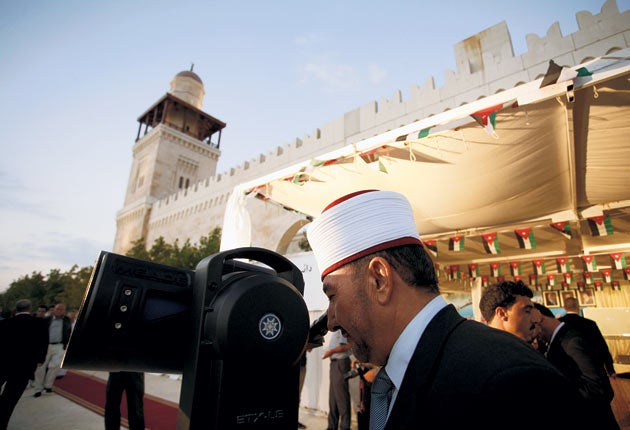Saudi star-gazers accused of bungling dates of Ramadan

Your support helps us to tell the story
From reproductive rights to climate change to Big Tech, The Independent is on the ground when the story is developing. Whether it's investigating the financials of Elon Musk's pro-Trump PAC or producing our latest documentary, 'The A Word', which shines a light on the American women fighting for reproductive rights, we know how important it is to parse out the facts from the messaging.
At such a critical moment in US history, we need reporters on the ground. Your donation allows us to keep sending journalists to speak to both sides of the story.
The Independent is trusted by Americans across the entire political spectrum. And unlike many other quality news outlets, we choose not to lock Americans out of our reporting and analysis with paywalls. We believe quality journalism should be available to everyone, paid for by those who can afford it.
Your support makes all the difference.When is a moon not a moon? That is the question vexing Islamic astronomers after accusations that Saudi Arabia had jumped the gun in declaring the festival of Eid ul-Fitr because they mistook Saturn for the Moon.
The festival is the most joyous moment in the Islamic calendar and celebrates the end of the fasting month of Ramadan. But every now and then celebrations are marred by bickering between competing Islamic authorities over when Eid starts. This year's row is over whether the festival should have begun last Monday or Tuesday.
According to the instructions laid down by the Prophet Mohamad, Muslims can only break their fast when the crescent of a new moon is spotted above the horizon.
Where once Muslim communities relied on local committees of star-gazers to locate the new moon – known in Arabic as the Hilal – a growing number of mosques around the world now look to the Saudi authorities to decide when Eid celebrations can begin. Last week Saudi scholars declared that the end of Ramadan began on Monday evening and gave the signal that Eid celebrations could commence. But others were not so sure. In Indonesia, which often disagrees with the Saudis over the Hilal, the official religious authorities insisted that celebrations could only begin on Tuesday evening. The Royal Observatory last week said the crescent moon could only be seen in Britain on Wednesday, but that didn't stop hundreds of UK mosques from following the Saudi lead and starting celebrations on Monday.
Some astronomers in the Gulf suggested that the object the Saudis claim they saw in the sky on Monday night was in fact Saturn. The accusation has infuriated the Kingdom's notoriously authoritarian scholars who have begun preaching against those who claim they made a mistake.
According to the Arab News website, Saudi Arabia's Grand Mufti Abdul Aziz bin Abdullah al-Asheikh condemned the lunar naysayers at Friday prayers, accusing them of being "motivated and deviated people with foul mouths that cast doubt on our religion and should be silenced".
The dispute has been seized upon in Shia Iran, which is hostile towards Saudi Arabia because the country's intolerant strand of Wahabi Islam views the Shias as heretics. The semi-official Fars news agency carried a report suggesting that the Saudis would have to pay kaffarah – an Islamic fine which is sometimes used by Muslims as recompense for missing a day's fasting or breaking an oath. At the time of writing there was no such admission from the Saudi authorities.
Join our commenting forum
Join thought-provoking conversations, follow other Independent readers and see their replies
Comments